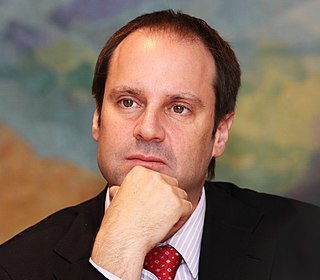A Quote by Marianne Williamson
The right tends to posit that the market fuels social good. The left tends to posit that the government fuels social good. At bottom, democracy claims that citizens drive social good, but there is currently no container for a political force-field that stakes claim to the unbelievable resources now virtually untapped in every man, woman, and child in our society.
Related Quotes
For what is meant by saying that a government ought to educate the people? Why should they be educated? What is the education for? Clearly, to fit the people for social life - to make them good citizens. And who is to say what are good citizens? The government: there is no other judge. And who is to say how these good citizens may be made? The government: there is no other judge. Hence the proposition is convertible into this - a government ought to mold children into good citizens, using its own discretion in settling what a good citizen is and how the child may be molded into one.
And in the process, we have come up with fuels - algae-based fuels, isobutanol-based fuels and other fuels - that we think will power the planes in the future so that, you know, by 2020 I hope that our planes will be powered on fuels that are clean fuels and are not polluting the environment so that we'll have a green airline and an airline that actually has fuels that will be hopefully cheaper than the dirty fuels of the past. So [we're] doing good and also turning a profit at the same time.
Corporations, consumers, and citizens must begin acting in concert to create a powerful third pillar of social transformation if we hope to meet the social challenges we currently face with equal force. This begins with corporations that choose to alter how they practice capitalism in two ways to serve the greater good.
To call a posit a posit is not to patronize it. A posit can be unavoidable except at the cost of other no less artificial expedients. Everything to which we concede existence is a posit from the standpoint of a description of the theory-building process, and simultaneously real from the standpoint of the theory that is being built.
As to the origin of civil Societies or Governments; the Author of our Being, has given Man a Nature to be fitted for, and disposed to Society. It was not good for Man at first to be alone; his nature is social, having various Affections, Propensities and Passions, which respect Society, and cannot be indulged without a social Intercourse.
I think communities of faith are extremely important in this question. I think that all faith communities share a common and unusual distinction in our time of being the only institutions left that can posit some goal other than accumulation for human existence. I think that's enormously important because it is that drive for consumption more than anything else that fuels the environmental devastation around us.
The theory of social contracts extends as far back as Plato. However, it was the great 18th century social philosophers John Locke, Thomas Hobbes, and Jean-Jacques Rousseau who brought the concept of a social contract between citizens and governments sharply into political thinking, paving the way for popular democracy and constitutional republicanism.
Political philosophy is realistically utopian when it extends what are ordinarily thought to be the limits of practicable political possibility and, in so doing, reconciles us to our political and social condition. Our hope for the future of our society rests on the belief that the social world allows a reasonably just Society of Peoples.
What type of new economical system can organize this system? There is another sector in our life, that we rely on every single day, that are absolutely essential: the social commons, the social economy. It is all the activity we engage in to create social capital. It doesn't create capital market. Social commons is growing faster than the market place. It is growing faster than the market place. The social commons include any activity that is deeply social and collaborative.
What social safety net does is provide a glimmer of hope for what a democratic socialist society might look like. It makes the claim that without social provisions, without a welfare state, without a social contract, society can't survive. We need a foundation for people - economically, politically, and socially - where what the Right considers "entitlements" are really rights.


































